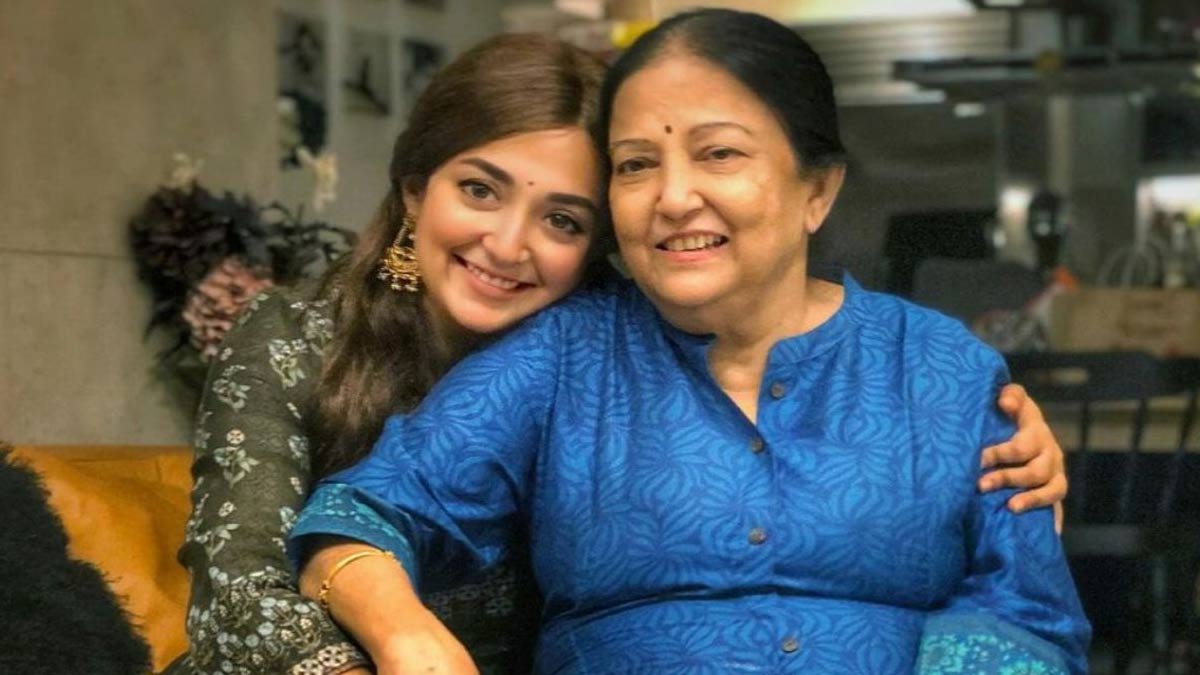
Renowned singer Monali Thakur is currently grappling with an immense personal loss. The National Award-winning artist recently took to Instagram to share the heartbreaking news of her mother's passing. The tragedy struck while Monali was in Bangladesh for a concert, adding a layer of complexity to her grief.
Table of Content:-
On May 17, at 2:10 PM, Minati Thakur breathed her last, just a day after being removed from life support. She had been on a ventilator for over 20 days in a private hospital in South Kolkata, battling severe kidney issues and undergoing regular dialysis. Her final rites were performed at Keoratala crematorium on the same day.
In a touching tribute to her mother, Monali shared a series of photos of the two together, writing, “The one who kept giving me wings finally took her own and flew. Baba and Daichi I am sure are waiting to receive you. I’ll join when my time comes but for now... my Love...” This poignant message underscores the deep bond she shared with her mother and the profound impact of her loss. This tragedy comes just three years after Monali lost her father, Sakti Thakur, also a singer and actor, while she was away in Switzerland.
View this post on Instagram
Coping with the Death of a Mother
Losing a mother is one of the most challenging experiences one can face. The emotional toll it takes is immense, regardless of the nature of the relationship shared. Whether you had a close bond or a complicated one, the death of a mother leaves a significant void.
The Impact of Losing a Mother
The bond between a child and their mother is deeply rooted in attachment, as proposed by British psychologist John Bowlby. He emphasised that children are inherently driven to seek attachment with their caregivers, not merely for sustenance but for emotional security and nurturing. Therefore, the grief experienced upon losing a mother is profound, often reflecting the depth of this fundamental relationship.
The Grieving Process
Grief manifests in various forms and intensities. Some common emotional responses include:
- Shock and Numbness: An initial disbelief that can make the reality of the loss hard to accept.
- Sadness and Confusion: A profound sense of sorrow and a feeling of being lost without the maternal figure.
- Anger: Sometimes directed at the situation, oneself, or even the deceased.
- Difficulty Concentrating: Grief can make it hard to focus on everyday tasks.
Grief can also have physical effects, such as:
- Digestive Problems
- Energy Loss
- Sleep Disturbances
- Weight Changes
- Nervousness

Risk of Psychiatric Disorders
The death of a loved one, particularly a mother, can trigger or exacerbate mental health disorders. Some individuals may experience:
- Major Depressive Disorder
- Panic Disorder
- Post-Traumatic Stress Disorder (PTSD)
- Generalised Anxiety Disorder
Also Read: Yami Gautam Welcomes First Child With Hubby Aditya Dhar; Know The Right Post-natal Care For Mothers
Prolonged Grief Disorder
While many people gradually adapt to their loss, some may experience persistent complex bereavement, also known as Prolonged Grief Disorder. This condition is characterised by prolonged and intense grief that significantly impairs daily functioning even after 12 months. Symptoms include:
- Difficulty Moving On
- Emotional Numbness
- A Sense of Meaninglessness
- Persistent Disbelief
Healing and Moving Forward
Grieving the loss of a mother is a deeply personal journey. Here are some steps to help navigate this difficult time:
- Feel the Feelings: Allow yourself to experience the emotions that come with grief.
- Express Yourself: Talking about your feelings with others or through writing can be therapeutic.
- Spend Time Alone and with Others: Balance solitude with the support of friends and family.
- Talk to Her: This can be through prayers, letters, or other personal rituals.
Seeking Professional Help
Therapy can be incredibly beneficial after such a significant loss. Many therapists specialise in grief counselling and can provide the support needed to process and heal from the pain. Additionally, support groups, both in-person and online, can offer a sense of community and understanding.
Bottomline
The death of a mother is a profound loss that reshapes one's life. Monali Thakur's recent tragedy highlights the universal pain of losing a parent and the importance of support and self-care during such times. While the journey through grief is arduous, it is also a path toward healing and finding a new way to honour the memory of a beloved mother.
Also watch this video
How we keep this article up to date:
We work with experts and keep a close eye on the latest in health and wellness. Whenever there is a new research or helpful information, we update our articles with accurate and useful advice.
Current Version
